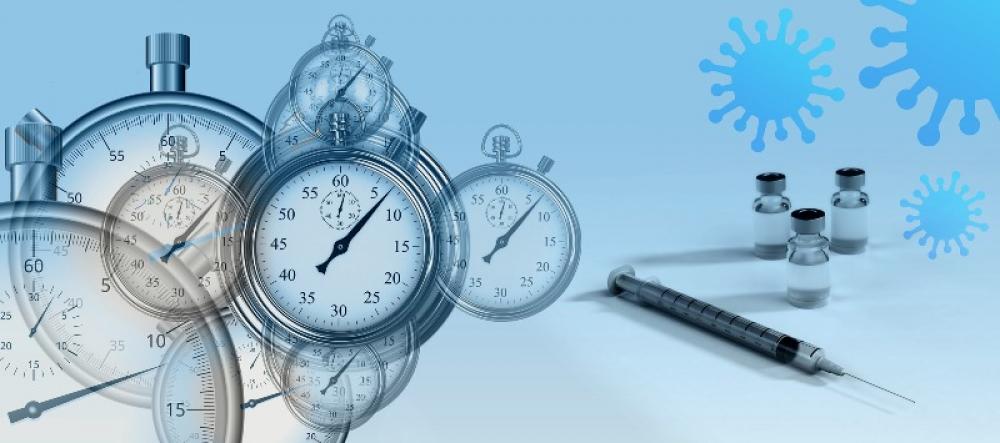Just Earth News | @justearthnews | 23 Nov 2020

Pixabay
London: Oxford University’s AstraZeneca vaccine candidate, AZD1222, which is being developed against COVID-19 disease has shown 70 percent efficiency on average, officials said.
"Phase 3 interim analysis including 131 Covid-19 cases indicates that the vaccine is 70.4% effective when combining data from two dosing regimens," Oxford University said in a statement.
In the two different dose regimens vaccine efficacy was 90% in one and 62% in the other," the statement said.
The university said early indication that vaccine could reduce virus transmission from an observed reduction in asymptomatic infections.
Professor Andrew Pollard, Director of the Oxford Vaccine Group and Chief Investigator of the Oxford Vaccine Trial, said: "These findings show that we have an effective vaccine that will save many lives. Excitingly, we’ve found that one of our dosing regimens may be around 90% effective and if this dosing regime is used, more people could be vaccinated with planned vaccine supply. Today’s announcement is only possible thanks to the many volunteers in our trial, and the hard working and talented team of researchers based around the world."
Professor Sarah Gilbert, Professor of Vaccinology at the University of Oxford, said:
"The announcement today takes us another step closer to the time when we can use vaccines to bring an end to the devastation caused by SARS-CoV-2. We will continue to work to provide the detailed information to regulators. It has been a privilege to be part of this multi-national effort which will reap benefits for the whole world."
The University of Oxford, in collaboration with AstraZeneca plc, today announces interim trial data from its Phase III trials that show its candidate vaccine, ChAdOx1 nCoV-2019, is effective at preventing COVID-19 (SARS-CoV-2) and offers a high level of protection.
These preliminary data indicate that the vaccine is 70.4% effective, with tests on two different dose regimes showing that the vaccine was 90% effective if administered at a half dose and then at a full dose, or 62% effective if administered in two full doses, read the statement.
Adenovirus vaccines have been researched and used extensively for decades and have the significant benefit that they are stable, easily manufactured, transported and stored at domestic fridge temperature (2-8 degrees C). This means they can be easily distributed using existing medical facilities such as doctor’s surgeries and local pharmacies, allowing for the vaccine, if approved, to be deployed very rapidly.
Oxford University’s collaboration with AstraZeneca has been crucial to the successful development of the vaccine and vital for its global manufacturing and distribution across the world. AstraZeneca already has international agreements in place to supply three billion doses of the vaccine, with access being built through more than 30 supply agreements and partner networks.
A key element of Oxford’s partnership with AstraZeneca is the joint commitment to provide the vaccine on a not-for-profit basis for the duration of the pandemic across the world, and in perpetuity to low- and middle-income countries.
Professor Louise Richardson, Vice-Chancellor at the University of Oxford, said, "This is a great day for the University of Oxford and for universities everywhere. Pushing at the frontiers of knowledge with partners across the globe and putting our extraordinary brainpower in service to society, is what we do best."